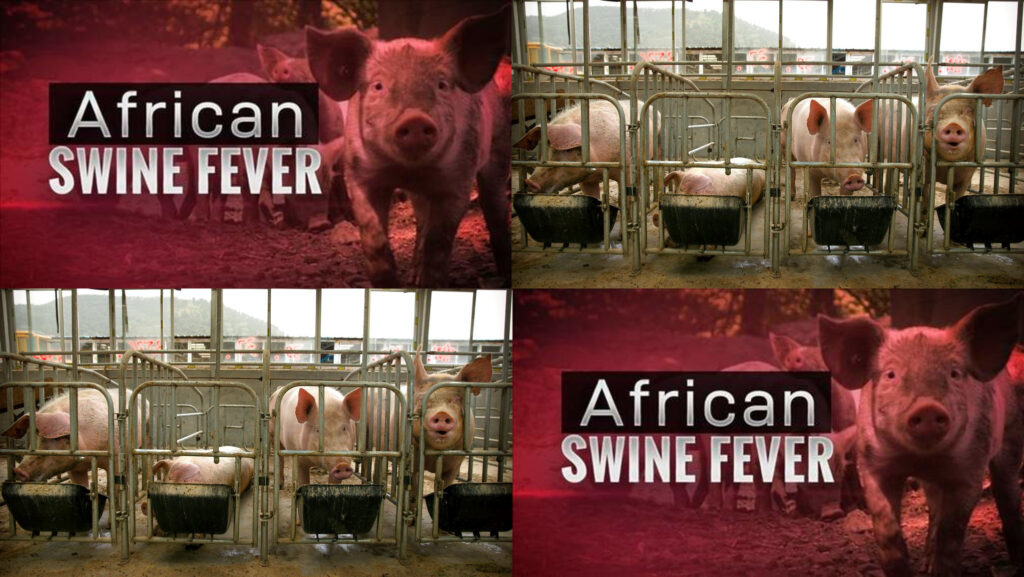WASHINGTON — The U.S. Department of Agriculture (USDA) announced its intent to designate the U.S. Virgin Islands and Puerto Rico as a “protection zone,” a World Organization for Animal Health (OIE) designation that allows the United States to maintain its current animal health status should there be a detection of African swine fever (ASF) or other foreign animal disease on the island territories.
The USDA will work to gain OIE acceptance of this designation to maintain U.S. pork export continuity should Puerto Rico or the U.S. Virgin Islands have an animal test positive for African swine fever in the future. The United States, including Puerto Rico and the U.S. Virgin Islands, remain free of African swine fever, a swine-only disease with no human health implications. There is no commercial pork trade from Puerto Rico or the U.S. Virgin Islands to the United States mainland.
“We thank Secretary Vilsack for taking this pre-emptive step to preserve the continuity of U.S. pork exports as we continue to work together to prevent the spread of African swine fever to the United States,” said Jen Sorenson, president of the National Pork Producers Council. “We have significantly bolstered U.S. biosecurity defense against ASF since it began spreading in the Asia-Pacific region nearly three years ago and must re-double our efforts given the recent outbreak in the Dominican Republic.”
The USDA announced confirmed cases of ASF in the Dominican Republic (DR) on July 28, 2021. The cases were confirmed as part of an ongoing cooperative surveillance program between the United States and the DR. The United States imports no pork, animal feed or other pork production-related products from the DR. The USDA, Customs and Border Protection (CBP), NPPC and other industry organizations are working together to contain the first outbreak of ASF in the Western hemisphere in approximately 40 years to the DR. These measures include:
- Aid to the DR — The USDA is providing continued testing support to the DR, setting up laboratory equipment and training laboratory personnel, providing personal protective equipment, and offering ongoing assistance on response and mitigation measures. In addition, surveillance and testing aid have been offered to Haiti, as it borders the DR and is at a significant risk for contracting ASF.
- Haiti Risk Mitigation — NPPC has reached out to the U.S. Department of State to ensure appropriate ASF-prevention protocols are followed by U.S. earthquake relief workers travelling to and from Haiti (e.g. making bleach solutions available to disinfect shoes). The State Department, USDA and USAID are collaborating in this effort.
- Enhanced mitigation efforts in Puerto Rico (PR) — CBP and USDA have taken a number of steps to guard against the spread of ASF to PR, including support for the U.S. Coast Guard to intercept illegal boat traffic from the DR and Haiti to Puerto Rico. They have also prioritized depopulation of urban feral pigs in PR over the next 12-18 months and are establishing a surveillance lab in PR.
- Collaboration with Mexico and Canada — The United States is working with Mexico and Canada to bolster ASF prevention efforts across North America. For example, Mexico has tightened inspection at land and sea ports since the DR outbreak. It has also taken appropriate measures to mitigate the risk presented by migrant workers moving between Mexico and the DR. In addition, NPPC represents U.S. producers on the North American Swine Health Working Group, which was formed by the chief veterinary officers of Mexico, Canada and the United States. The focus of the group has been biosecurity of the North American continent, laboratory harmonization and developing criteria for recognition of regionalization.
NPPC noted the following measures for U.S. pork producers to take to prevent ASF:
- Use caution when hosting on-farm visitors from an ASF-positive region of the world; follow downtime recommendations from USDA’s Plum Island Foreign Animal Disease Diagnostic Laboratory.
- Review your biosecurity protocols to ensure consistent practice of appropriate safeguards.
- Fill out the Foreign Animal Disease Preparation Checklist found here and enroll in the Secure Pork Supply program.
- Visit with your feed suppliers to discuss the origin of the feed ingredients they are using in your diets.
Vacation and other travelers to the DR should know that it is illegal to transport specialty meat products or other agriculture products from the DR to the United States.
For additional information on ASF biosecurity, please visit www.nppc.org/asf.

